



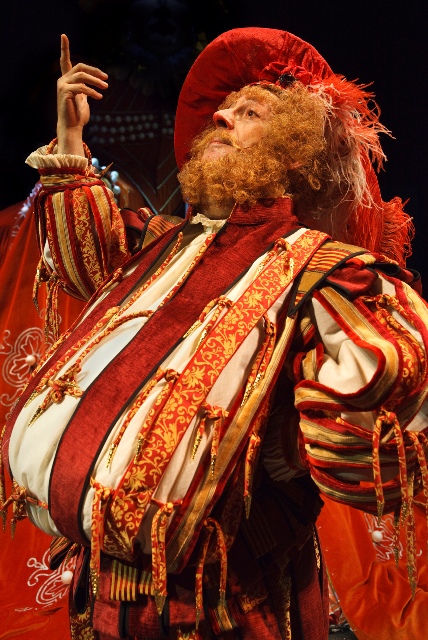
To celebrate his 50 years career, the Italian actor Leo Gullotta has drown up a masterpiece-show collaborating with Director Fabio Grossi, creating a theatre event that’s all around Italy since 2010.
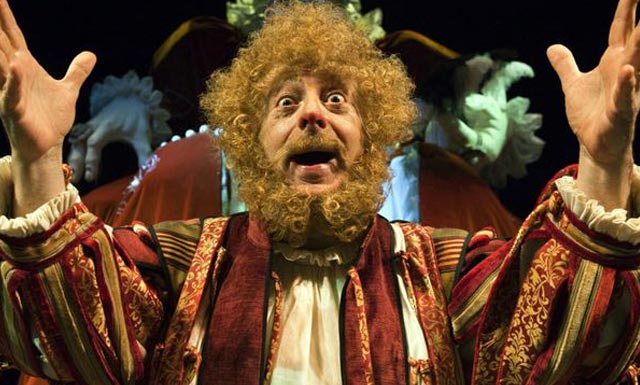 Shakespeare’s “The Merry Wife of Windsor”, the extraordinary comedy by the English author and poet dated 1602, features Gullotta’s amazing makeup, affording his physical appearance with a 30 kilos costume for the role of Sir John Falstaff, already central element in the two parts of Henry IV, and here a a sort of alcoholic sir, addicted to women and good-life.
Shakespeare’s “The Merry Wife of Windsor”, the extraordinary comedy by the English author and poet dated 1602, features Gullotta’s amazing makeup, affording his physical appearance with a 30 kilos costume for the role of Sir John Falstaff, already central element in the two parts of Henry IV, and here a a sort of alcoholic sir, addicted to women and good-life.
At Teatro Comunale of Vicenza, the impression has been of an amazing play, with great actors: something you’ve to see once in your life, to understand “how it has to be”!
Leo Gullotta has argued his role, the Italian cinema, the evolution of comedy in the last 30 years and his special artistic relationship with Director Giuseppe Tornatore, with whom he’s worked for “Nuovo Cinema Paradiso”, “Il Camorrista”, “Baaria”, and “L’Uomo delle Stelle”.
LG:
“Approaching to Falstaff’s role raised up at Roman Theatre some years ago, where the show debuted. It’s been a challenge, because of the political cuts tto culture and art here in Italy: few artists and scenes cut too. I can’t stand this. It’s the death of a nation. By the way, I’ve worked with Fabio Grossi before in lots of shows): we wanted to dedicate this show to all the past Falstaff’s actors in Italian history of theatre, because we think that celebrate the past must be at the bases for the future. Five acts reduced in two, with an ending extrapolated by a Shakespeare’s sonnet, in which the protagonist gives a solo declaration of reflection and diversity, entitled “I am what I am”, not hidden by society.
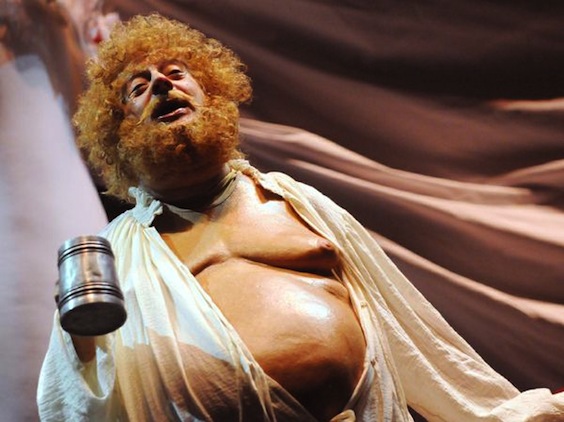
This Shakespearean attitude and comedy is tipical of the works by the headmaster of literature and theatre, and also gives an idea of two things: on the first side that his capability to draw society and characters was amazingly right, giving roles such a detailed connotation also contemporary on today’s societies. On the other side we can see that all the characters of the play are like the first sketches of Shakespeare’s future plays, from the lovers (then in “Romeo and Juliet”) to the jealous man (“Otello”), for example.
I’ve got a really striking costume, very heavy, and I have to speak and walk like a very fat man. It’s a huge physical proof! It’s my work, you know!
Also the role of music s such important in the play: everything reminds about music, from the groove of the verses to the sang parts. It was a great amount of art, in every direction: today, in Italy, we’ve almost lost the attitude to study and try… but it’s a long and old story…
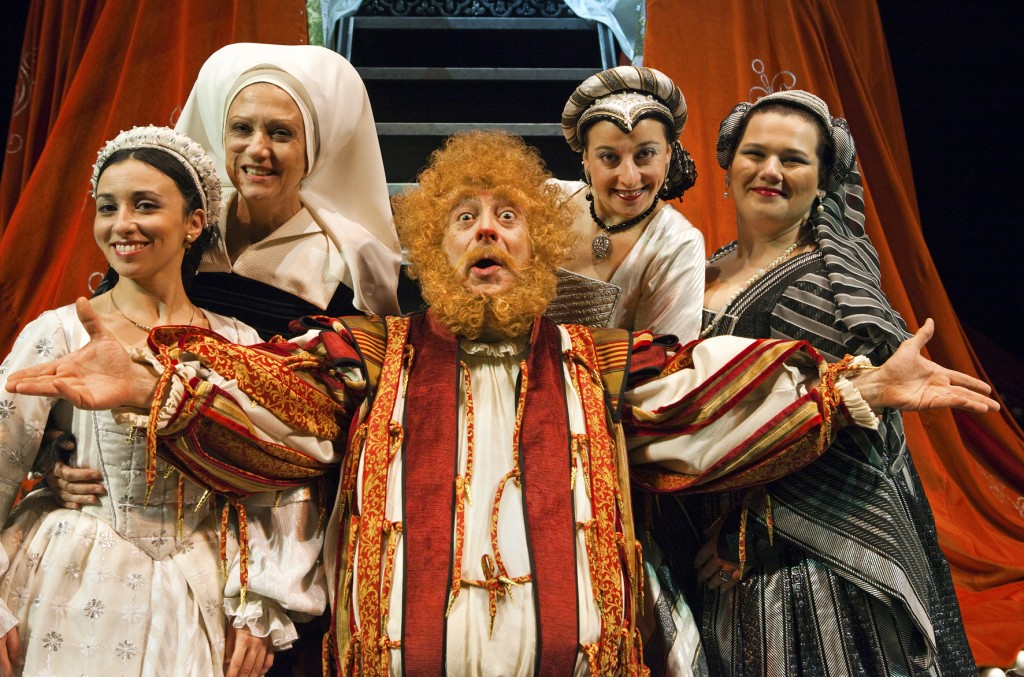
I’ve always been very curious, and addicted to the statement “Appear is a little death”.
I’ve worked with past authors, directors and actors, for cinema, at theatre and on tv. My work for the Italian tv-show “Bagaglino”, with my satiric old-style performance, has given me the mainstream success, but sometimes some snobbish critics already insist that, yes, I’m good in acting, but it was a pity that I’ve participated to this show: I think it’s not good to say that, because if international artists can argue a polyhedral attitude, doing comedy, mainstream, indie productions and more, they’re considerate great. For Italians this can’t sound good, I suppose, but I don’t know why!

I’m also a dubber: this is a different kind of language, you know. You have to get in touch with the essence of the characters you’re going to dub, and give a sound to that faces. Now I’ll be the official new dubber of Woody Allen, I admire, substituting my passed away friend and colleague Oreste Lionello.
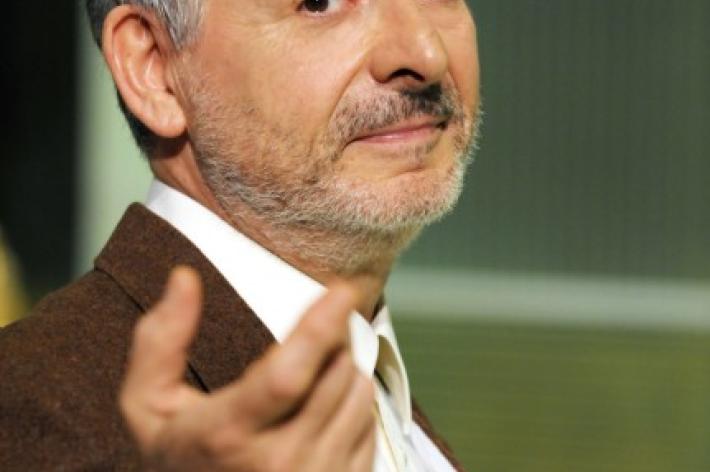
Working with Giuseppe Tornatore?
You know: we’re both from Sicily, we appreciate each-other. I think he’s a great artist in direction, he’s a poet of vision.
he’s done “Il Camorrista” some years ago, and it’s been the same thing as it’s been “Gomorra” a few years ago: such a bravery in art!
Italian cinema is a little paralyzed: some productions don’t assert young (but not only)talents in directions or for the scripts, preferring the same things year by year. I think this flows at the same direction in order to suffocate and compress Italians’ cultural level. It’s so dangerous…
Theatre (and art) is a drug for minds!
We’ve not to forget that!”
by Ilaria Rebecchi